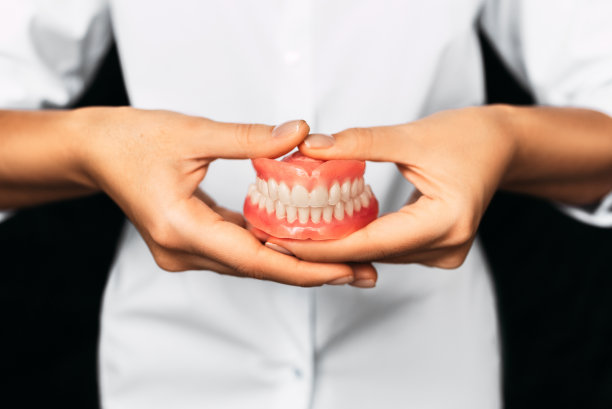Summary: Dental implants have revolutionized the field of restorative dentistry by providing a viable solution for individuals with missing teeth. This article explores the multifaceted benefits of dental implant treatments, which not only restore aesthetic appearance but significantly enhance oral function. We delve into the long-term success rates of dental implants, outlining why they are often regarded as the standard of care for tooth replacement. Additionally, the psychological benefits, the impact on overall health, and the advantages over traditional dental solutions are examined in detail. By the end of this exploration, readers will gain a comprehensive understanding of how dental implants can effectively restore smiles and improve the quality of life.
1. Understanding the Aesthetic Benefits

One of the foremost advantages of dental implants is their ability to restore the natural appearance of a smile. Unlike traditional dentures or bridges, implants are embedded directly into the jawbone, mimicking the structure of natural teeth. This provides a more lifelike appearance and functionality, significantly boosting an individuals confidence and self-esteem.
Additionally, dental implants can help maintain facial structure. When teeth are lost, the jawbone can deteriorate over time, leading to changes in facial features. Implants prevent this degradation by stimulating the bone, preserving the integrity of the facial structure and creating a more youthful look.
Moreover, patients often report an enhanced quality of life after receiving implants. The ability to eat, speak, and smile confidently can have profound psychological and social effects, promoting better interpersonal relationships and overall happiness.
2. Long-Term Success Rates of Dental Implants
The long-term success rates of dental implants are among the highest in the field of restorative dentistry, often reported to be between 90-95% after a decade. Several factors contribute to this remarkable durability, including the quality of the bone into which the implant is placed, the patients overall health, and adherence to post-operative care protocols.
Moreover, technological advancements in dental implant procedures have enhanced their predictability and effectiveness. Innovations in 3D imaging and guided implant placement have made it possible to achieve optimal positioning of the implants, further increasing their longevity.
Regular follow-ups and maintenance care are also crucial for sustaining the success of dental implants. By working closely with dental professionals, patients can ensure the longevity of their implants, addressing any potential issues before they escalate.
3. Health Benefits of Dental Implants
The health benefits of dental implants extend beyond restoring oral function; they significantly contribute to overall well-being. Missing teeth can affect digestion since they hinder the ability to chew food effectively. Implants allow patients to consume a wider variety of foods, thereby promoting better nutrition and overall health.
Additionally, dental implants can prevent bone loss, a common consequence of missing teeth. The titanium post of the implant integrates with the jawbone, stimulating it and preventing further deterioration. This not only preserves oral health but also ultimately affects general health in terms of reducing risks of diseases linked to poor nutrition.
Furthermore, dental implants can contribute to better oral hygiene practices. Unlike bridges, which require special cleaning methods, dental implants are easy to care for. They can be brushed and flossed just like natural teeth, encouraging patients to maintain good oral hygiene habits that benefit their overall health.
4. Advantages Over Traditional Solutions
Compared to traditional dental solutions, dental implants provide a more secure and permanent option for tooth replacement. Dentures can slip or move while eating or speaking, leading to discomfort and embarrassment. In contrast, implants are anchored firmly in place, allowing for normal activities without fear of displacement.
Moreover, dental implants do not require the alteration of adjacent teeth as bridges do. Traditional bridgework involves filing down neighboring teeth to accommodate the prosthetic, which can compromise their health. Implants function independently, preserving the integrity of surrounding natural teeth.
Finally, the financial investment in dental implants often proves worthwhile in the long run. While they may have a higher initial cost than traditional options, their longevity and low maintenance needs can save patients money on replacements and continual adjustments typically required with dentures or bridges.
Summary:
In conclusion, dental implants serve as a remarkable solution for individuals seeking to restore their smiles and oral function. With numerous aesthetic, health, and functional benefits, their long-term success rates solidify their reputation as an ideal option for tooth replacement. The advantages over traditional methods further underscore the appeal of implants.
This article is compiled by Vickong Dental and the content is for reference only.
Vickong Dental
Vickong Dental is a large medical group established in Hong Kong in 2008 by professors from well-known medical universities in Guangdong and Hong Kong, as well as medical doctors from key national '985' universities (including Master's supervisors and senior professors). The chain of branches brings together expert dentists with PhDs and Master's degrees from Hong Kong and Mainland China, committed to providing high-quality dental treatment.
"Vickong Dental Practices the University Motto of 'Healing and Serving Society,' with a Stable Operation for Sixteen Years. It Has Been honored with Hong Kong Enterprise Leaders's Choice,' and is a Global Trusted Implant Center for the Nobel Implant System. Recommended by Hong Kong Metro Broadcast and Guangdong Television, it Serves Customers from Over Thirty Countries and Regions, Gaining the Trust and Favor of Citizens from the Guangdong-Hong Kong-Macau Greater Bay Area and Surrounding Cities.

Thousands of customers' unanimous praise
The most recognized and highly recommended dental service by customers in the Guangdong-Hong Kong-Macau Greater Bay Area
We Ensure You Receive Detailed Care and Attention Here
Hong Kong standards, Shenzhen prices, Your Trusted English-speaking dentists

Vickong Dental Medical-Grade Instrument Disinfection Process
Vickong Dental Medical-Grade Instrument Disinfection Process

Vickong Dental Chain: A Warm and Comfortable Environment for Treatment






Appointment Hours

Q&A
Why choose Vickong Dental?
Vickong Dental practices the university motto 「Medicine to Benefit Society」, with each branch bringing together highly qualified dentists with doctoral and master’s degrees from Hong Kong and the Mainland, and has maintained seventeen years of steady operation。Recipient of 「2024 Hong Kong Enterprise Leaders Brand」, 「2025 Hong Kong Enterprise Leaders Brand」, a Nobel Biocare Global Trusted Implant Center, and a brand recommended by Metro Radio Hong Kong and Guangdong TV。
To date, we have served customers from more than thirty countries and regions,earning exceptionally high word-of-mouth recognition and trusted recommendations from residents across the Guangdong-Hong Kong-Macao Greater Bay Area and surrounding cities
We have eight major branches in Zhuhai、Shenzhen,and a consultation and service assurance center in Hong Kong,so you can book a free consultation at any time for any questions,which is very reassuring.
If I do not accept the quotation after the CT scan, will I be charged??
No! As long as the actual treatment has not started, you will not be charged any fees.
Will there be any additional charges during the treatment process?
No, there won’t be any additional charges. Before treatment begins, we will clearly explain the treatment plan and its corresponding fees. Only after the patient agrees and signs the consent form will we proceed with the dental service.
Can I pay in Hong Kong dollars?
Yes. Vickong Dental accepts payment in Hong Kong dollars. The amount will be converted based on the exchange rate of the day, and the applicable rate will be clearly communicated to you in advance.
Can I reschedule my appointment at any time?
Yes. Please contact us via **WeChat** or **WhatsApp** as early as possible, providing your original appointment time and details, along with your preferred new date and time slot for rescheduling.













